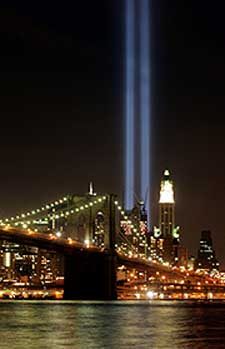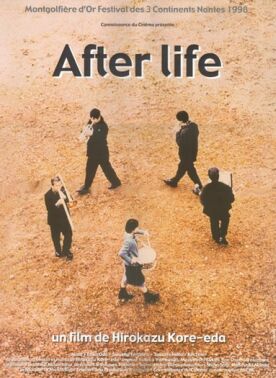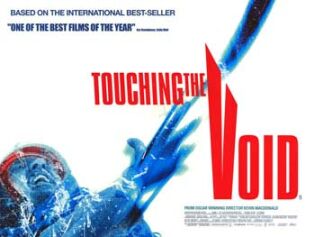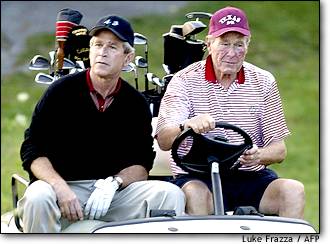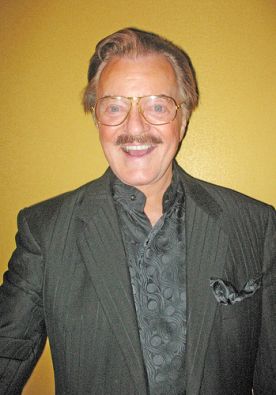Past the Political, to the Healing and Rebuilding
From The New York SunAs David L. Cunningham and Cyrus Nowrasteh have found with their ABC miniseries, “The Path to 9/11,” treating the war that started on September 11, 2001, as a war and trying to explain what happened and why only stirs up a hornets’ nest of protests from those who might have been in a position to stop it.
Far better — far easier, anyway — to forget all that, treat the terror attacks as if they were a natural disaster, and memorialize the victims. Nobody ever got in trouble over the sort of pathos and uplift we find in “America Rebuilds Part II: Return to Ground Zero” or “Brothers Lost: Stories of 9/11.”
The first, airing on PBS tonight after President Bush’s address, follows on from a program broadcast back in 2002 and is about what has happened to the site in the last five years. And although we hear from a lot of the people actually involved in various efforts to rebuild there, it turns out that the word “America” in the title is well-deserved.
For we see in this rebuilding effort a lot of the qualities associated with early 21st-century America: brilliant and gargantuan engineering projects, a can-do attitude, lots of public relations hype, religiosity, maudlin public sentiment, and protests and litigation on every conceivable subject, even grief.
Sometimes these things are all mixed up. In one scene, the leader of an informal prayer service on behalf of protestors against Michael Arad’s design for a subterranean memorial prays: “Father God, give these family members what they are asking for, that they may be able to come here and remember [their loved ones] in the light of day, not having to go underground, not having to be in the dark. Amen.”
The film itself, advertised in its press materials as “the definitive record of the efforts to rebuild Ground Zero,” partakes of the hype which seems inseparable from the selling of the rebuilding project, claiming in Mariska Hargitay’s voice-over narration that “the creation of a fitting memorial” is “an unprecedented task” — which it is only if you ignore any of the obvious precedents, such as the memorial to the victims of the Oklahoma City bombing.
The heroes of “America Rebuilds” are not just the engineers and designers who, under the direction of owner Larry Silverstein and architect David Childs, rebuilt 7 World Trade Center — “the last building to come down, the first building to go back up.” They are also the PR people like those who, when there were no tenants for the building, came up with the slogan: “To leaders with vision: your office is ready.”
We even see the first tenants, the New York Academy of Sciences, being complimented: “You guys truly are leaders with vision.”
For all the film’s informative and inspirational content, we might have wished for a bit of distance on the part of its makers from this kind of puffery. But they’re keen to join in, perhaps because any word of doubt or criticism might suggest something less than a full-hearted participation in the grief of the survivors — who, the film tells us, are being recruited as guides to the site, partly for therapeutic reasons.
One such survivor is Lee Ielpi, father of late firefighter Jonathan Ielpi, who shepherds a class of high school kids from Phillipsburg, Kan. He tells them that he always cries and “there’s absolutely nothing wrong with it” — so of course they all start crying too. “They may forget my name, maybe my son’s name. But they won’t forget the guy that spoke to them about that horrible day.”
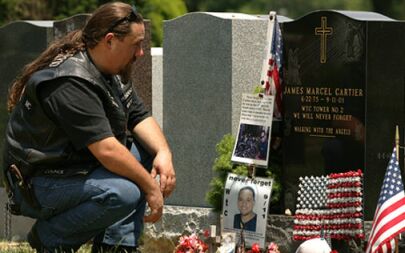 |
Memorializing emotions is also the subject of “Brothers Lost: Stories of 9/11,” airing tonight on Cinemax. The filmmaker, Sean McGinly, lost his brother Mark in the destruction of the World Trade Center and, being a filmmaker, decided to make a film “about what it meant to have and lose a brother.”
His film consists of interviews with a lot of other brothers who lost brothers that day, and he found that “people loved talking about their brothers; it brought them to life in a way.” In other words, “Brothers Lost” is not only therapeutic for Mr. McGinly, but for his interviewees as well. What’s not to like?
Is it too curmudgeonly to point out that there’s something the tiniest bit voyeuristic about inviting the whole nation to watch the therapeutic process, just the teensiest smidge compromising about making a public spectacle of one’s grief?
Yet there is also something appropriate in the idea of brothers paying tribute to brothers. One of Mr. McGinly’s subjects, Robert Lunder, cites Henry V’s “band of brothers” speech from Shakespeare’s play when he notes that his brother Chris and many of the friends that they had in common died at the same time.
“Those were the guys I confided in. And all of a sudden it’s like you went into battle and everyone was killed but you.” Later he says, “It’s not a death wish, but I wanted to be with them. … It’s like they went on a trip without me.”
This is a reminder that the attacks of September 11 were acts of war, and that without brotherly solidarity like this, wars cannot be fought. Another interviewee mentions talking to veterans of World War II who told him: “We lost a lot of guys then too, but we had to go on.”
Those words have to be set against the therapeutic language of some of these subjects who, like Lee Ielpi, feel no shame in the public display of emotion.
“In the beginning months, I was trying to stay tough … I was trying to hold everything back,” Zachary Fletcher says of the death of his twin brother André. “But then that eats you up inside when you do that. I said, ‘I gotta start expressing my emotions.’ “
He seems rather pleased with himself for no longer “trying to hold everything back” and admitting that “it’s not hard for me to cry now.” For him, as for the therapeutic culture, there is a moral and an emotional triumph in having got through all that macho, suck-it-up stuff. Well, that stuff may come in handy again at some point, particularly for those who must carry on the fight that was started that day.
Discover more from James Bowman
Subscribe to get the latest posts to your email.

